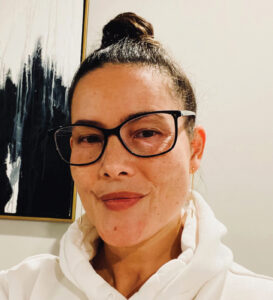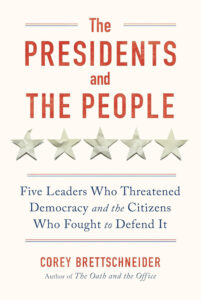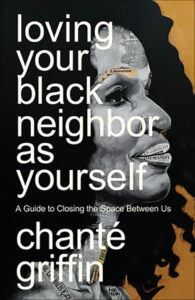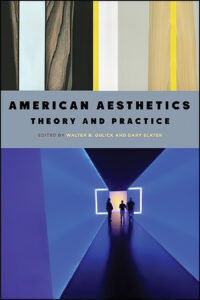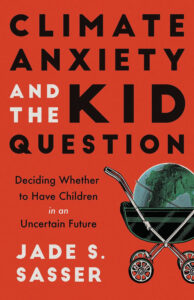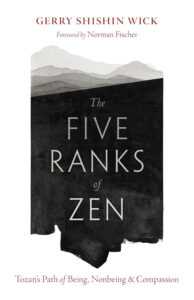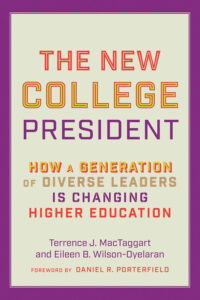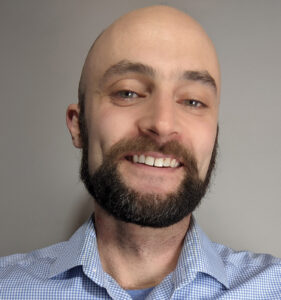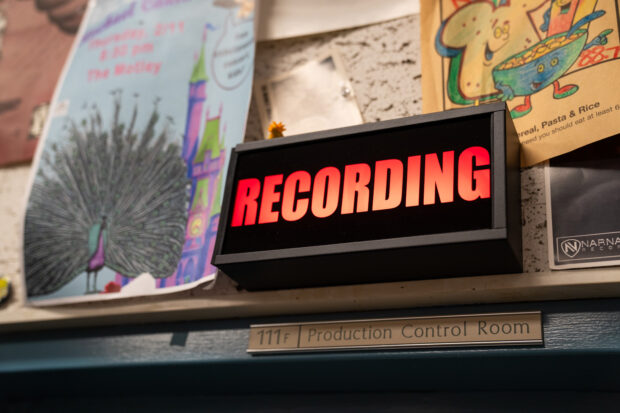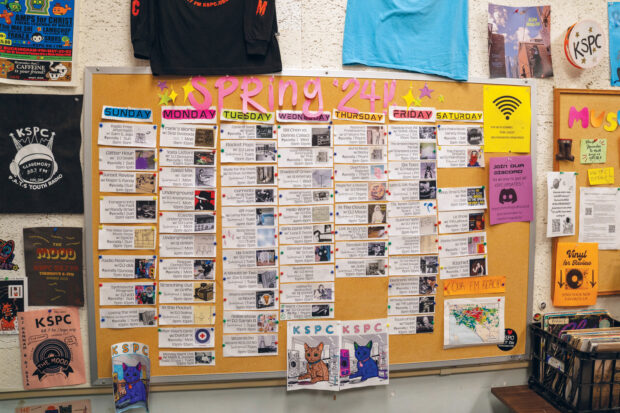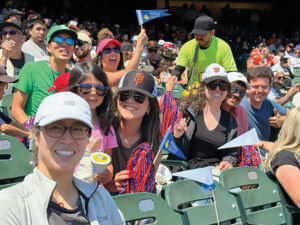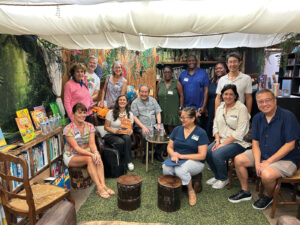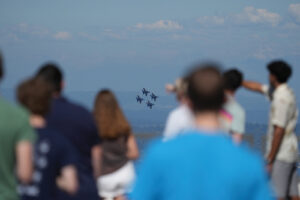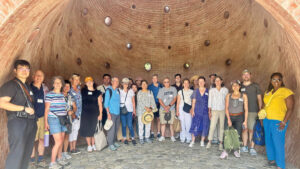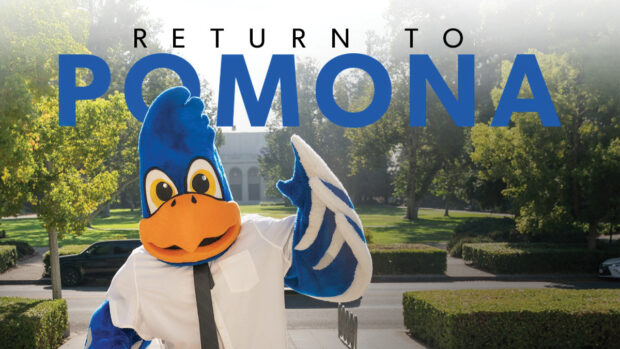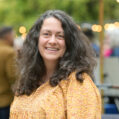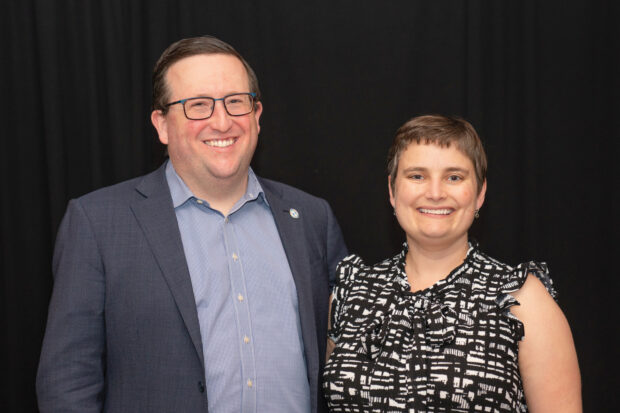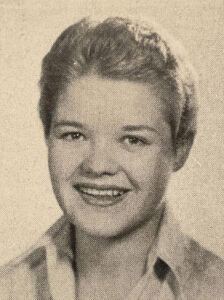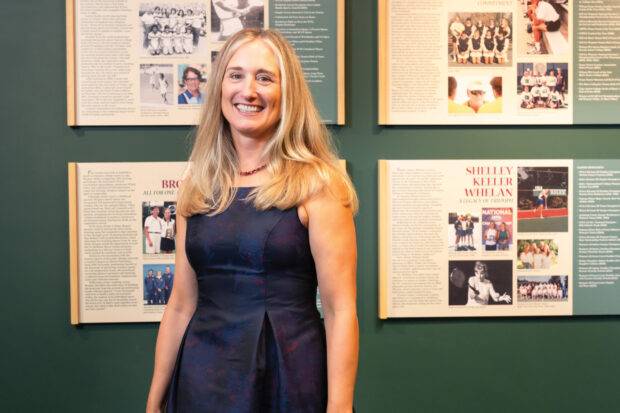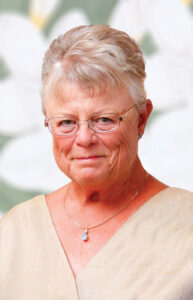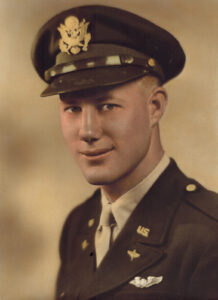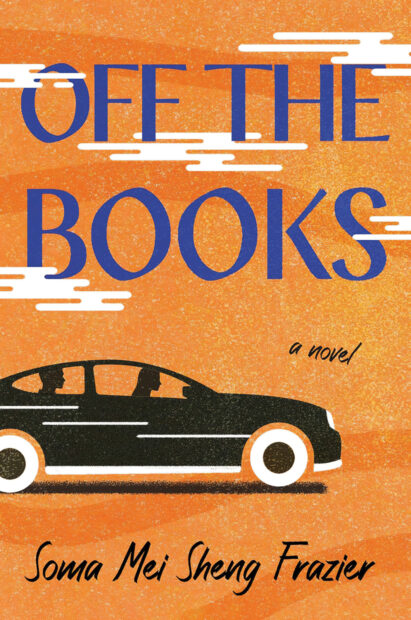 This summer, author and professor Soma Mei Sheng Frazier ’95 perched on a stool in front of an audience of Pomona alumni and opened her debut novel, a high-stakes road trip story published after nearly three decades of authoring shorter works. “Ready to get read to like babies at bedtime?” When she closed the book again, Frazier’s role model—Henry E. Sheffield Professor of History Samuel Yamashita—piped up to engage her in conversation about Off the Books, which, per The New York Times, “captures the relatable toggle between the private and the collective, between sinking into the anxieties of your life and grieving for the cruelties of the world.” In it, Frazier introduces us to Měi, a college dropout who begins driving private clients—including a man with a mysterious suitcase—to make ends meet. PCM spoke to Frazier about the book, the Uyghur ethnic minority group and her enduring admiration for Yamashita.
This summer, author and professor Soma Mei Sheng Frazier ’95 perched on a stool in front of an audience of Pomona alumni and opened her debut novel, a high-stakes road trip story published after nearly three decades of authoring shorter works. “Ready to get read to like babies at bedtime?” When she closed the book again, Frazier’s role model—Henry E. Sheffield Professor of History Samuel Yamashita—piped up to engage her in conversation about Off the Books, which, per The New York Times, “captures the relatable toggle between the private and the collective, between sinking into the anxieties of your life and grieving for the cruelties of the world.” In it, Frazier introduces us to Měi, a college dropout who begins driving private clients—including a man with a mysterious suitcase—to make ends meet. PCM spoke to Frazier about the book, the Uyghur ethnic minority group and her enduring admiration for Yamashita.
PCM: This book contains elements of mystery, drama, coming of age, Chinese American and multi-ethnic identity struggles, and the juxtaposition of East vs. West (globally but also between the two U.S. coasts). Did you set out to tackle all these issues, and how do you see them working in tandem to set the novel’s tone?
Frazier: The seed of Off the Books was a single issue: China’s treatment of the Uyghur ethnic minority group, many of whom have been “disappeared” into detention camps for such offenses as sporting the wrong beard. Their birth rates have plummeted, and children have been instructed not to speak the language their mothers sang them to sleep in.
To shine a light on that faraway situation, I set about writing the very American story of Měi Brown, a college dropout who finds herself driving a secretive private client from Oakland, California, to Syracuse, New York. As I wrote, all those themes grew from Měi’s personal growth and fraught relationships with a Caucasian dad and Chinese American mom, which became the backdrop for a quirky—and funny, I’ve been told—story about the circumstances that lead people to take big risks, and the consequences of leaving one’s home.
PCM: Several of the central characters do not fit typical molds. Lăoyé, the main character’s grandfather, is a smack-talking, weed-smoking, 86-year-old video-gamer from China. Does this reflect your own personal experiences? How do you believe it adds to the major themes of the story?
Frazier: Well, typical molds can suck it. In my personal experience, people gain freedom when we stop contorting ourselves to fit those molds. Lăoyé is actually almost everyone’s favorite character, and I believe that’s because he is a mold breaker. He’s unapologetically sincere. As children, we say what we truly think and feel because we haven’t learned how to do otherwise yet. Then, as we gain age and wisdom like Lăoyé, if we’re lucky, we return to authenticity. When we meet Měi, she’s just beginning that journey back to herself, remembering the difference between reaction and intentional, self-driven action. On top of that, transporting her sweet (and I’ll say it: sexy) client Henry Lee across the states ultimately leads her to take the wheel in other ways.
PCM: The story unfolds through flashbacks intertwined with the progress of Měi’s road trip through the U.S. Although disorienting at first, it nicely accorded with real life—that is, we are constantly relating the present to past events we have experienced, even without noticing it. Does that structure serve other purposes?
Frazier: We are always toggling back and forth between present and past. Through the structure, my hope is that the road trip itself gives the story momentum, while the flashbacks (interspersed with present-day action) allow the characters to sort of experience that languid mental wandering that we often do on long drives.
PCM: Why did you use pinyin (romanization of Mandarin Chinese characters) for Chinese terms, including notating them with tone marks in an English-language book?
Frazier: Měi’s Chinese is rudimentary, so she’s limited to the kind of household language that one picks up organically from an immigrant parent, like “I’m hungry.” I wanted to permit people who know Chinese, or grew up in households that spoke Chinese but do not have complete command of the language, to relate. I also wanted readers who don’t know Chinese to experience the sort of disorientation that Měi herself does when the other characters suddenly start conversing in this language she doesn’t fully understand. So that’s why I didn’t italicize the Chinese. Italicization implies a sort of separation from English. But then in real life, there’s no separation. I wanted what was on the page to mirror the experience of hearing the characters’ conversations in real life.
PCM: What do you ultimately hope that this book accomplishes?
Frazier: I hope that Off the Books will make readers laugh and remind us to be kind to one another. I also hope it will pique interest in China’s treatment of the Uyghurs, ethnic minorities and prisoners of conscience. Because, yes, they’re halfway around the world, but I think we’d be fools to think of their issues as distant. China is the U.S.’s number one trade partner, and likely to gain regional hegemony and become a superpower. Before speaking with you, I did an interview with Radio Free Asia where I learned from the Uyghur interviewer that family members of every one of her Uyghur colleagues have disappeared. Ultimately, I want people to know about this and acknowledge the ugly truths about our number one trade partner, just as I hope we do about this country. And then to decide on their own whether and how to act on that knowledge to make things better for everyone.
PCM: How did Pomona College help or inspire you to undertake this book?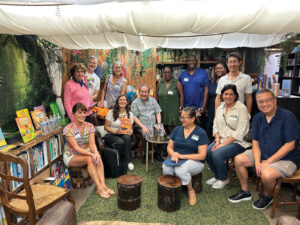
Frazier: When I was preparing to head to Pomona from New Hampshire, I walked into my mom’s office, and she was writing a check. I asked, “Hey, who’s that check going to?” And she replied that she was sending my aunties some money. I inquired why. After all, they were doing well. She said, “No, not those aunties—it’s for the aunties we had to leave behind in China.” And I didn’t know about these aunties, so I went off to Pomona reflecting on that experience and about the things I didn’t know about China. Those sentiments inspired me to delve further as an Asian studies major and Asian languages and literatures minor. Furthermore, I think a lot of experiences at Pomona—particularly being in Samuel Yamashita’s class—can make a person who might not have been focused on global politics think about global politics. Dr. Yamashita also makes us relate the issues we’re thinking about to our own behavior in the world. As the saying goes, a spoonful of sugar makes the medicine go down. In classes like his, you think you’re eating candy. Just all sugar. Yet you leave medicated, fortified with information about the world.
